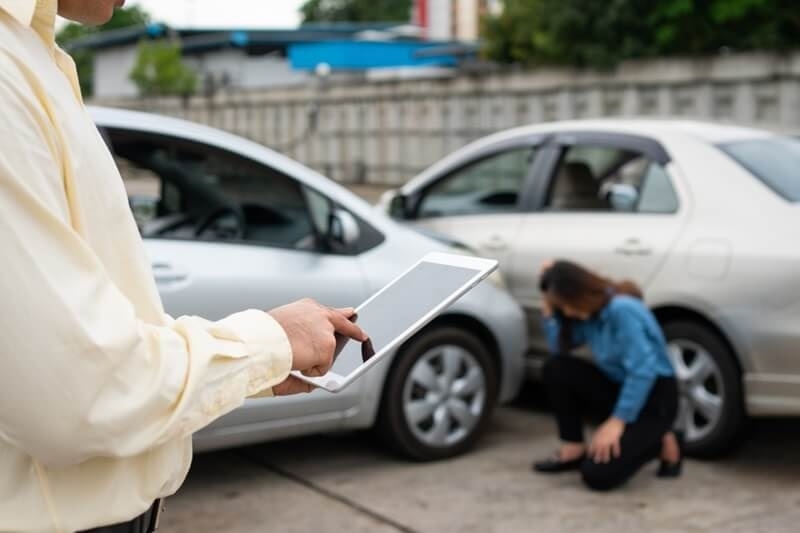
Accidents happen suddenly, and sometimes traumatically, and you don't know what to do next. But being informed about what to do right after an accident from an insurance point of view can be a big help. Whether it is a fender-bender or a more severe crash, knowing your insurance responsibilities, steps in reporting accidents, and how to report insurance after a collision can help make the process easier and safeguard your rights.
Within the initial few minutes of a car crash, your head might be racing — but remaining calm and doing the right thing will guarantee that your auto insurance claim proceeds without difficulties. This guide provides professional insurance after accident tips, such as the initial actions to take following a car accident, the best way to contact your insurer following an accident, and inside auto insurance claim tips to help you receive the assistance you deserve.
Safety first. The initial steps following a car accident are essential to your well-being as an individual and have important consequences for your insurance claim.
Your insurer will require information about the scene. Record everything using your smartphone—images of vehicle damage, license plates, road conditions, and any apparent injuries. These photos might be a must when submitting an insurance claim after an accident claim.

Perhaps one of the most essential accident reporting steps is to call law enforcement. You're usually required by law to report to the police in most states if there are injuries, serious damage to your vehicle, or deaths.
Even if the accident appears to be slight, a police report gives an impartial account that can vouch for your insurance post-accident claim. Be truthful and factual with the officer, but do not make assumptions or guesses about what caused the crash.
Important points to include in the report:
Ensure you ask for a copy of the police report. This report will probably be necessary when you start making contact with your insurance company following an accident.
Next, as soon as reasonably possible—preferably within 24 hours—contact your insurance after an accident. Most companies will have either mobile apps or 24/7 claim lines that allow you to get the ball rolling from your mobile device.
Why is this important? Because waiting too long could affect your eligibility to file a claim, especially if your policy has a time-sensitive clause. Similarly, advising your insurer quickly allows them to begin assessing damages, providing advice, and arranging tows or alternative transport if necessary.
Informing your insurance provider:
Prompt notification is crucial to easy post-accident insurance processing. It also keeps you in compliance with good standing with your policy terms.
Before you go any further, read your policy. A thorough reading of your coverage prevents unwanted surprises during the claim process. Here's some auto insurance claim tip that will guide you through this with transparency:
Understanding these factors will help guarantee that you're using the most when dealing with your accident after insurance policy. Inquire about deductibles, rental car insurance, and the amount of time they have to repair your vehicle from your agent so that you can know all of the information.
It is intimidating to call your insurance company after an accident. However, if you are prepared, it becomes easier. This is what to say (and not say) on your initial call.
Your accident insurance company will send a claims adjuster to walk you through what happens next, from car checks to claim forms and follow-up schedules.
Keep all associated records in one location in the days immediately after the accident. These include:
These records can be asked for at various points within your auto insurance claim process. Having them in order will mean you can answer any request that comes along quickly.
Also, put your own memory of the incident down while it is still fresh in your mind. This can be useful should the accident have to go to court or insurers disagree.
If the other party is responsible, their insurance will probably contact you. While it's customary, be cautious. Never give a recorded statement without first speaking with your insurer or attorney.
Here's how you can act:
Insurance claims can be complicated at times—particularly when injuries are sustained or fault is in question. In those instances, it's in your best interest to speak with a personal injury lawyer.
Legal experts can:
This is crucial if you're uncertain about steps in accident reporting, or are under pressure to settle for an inequitable offer. Your post-claim strategy for insurance after an accident should always consider your long-term interests.
Your insurance company will arrange vehicle repairs once your claim is processed and approved. If your vehicle is a total loss, they'll give a payout for its market value at the current time.
At this point, it's also a good idea to:
Proactivity after an accident sets you up for better next-time preparedness—particularly with lessons learned from this insurance after accident experience.
Being in an accident is stressful—getting through your insurance after an accident doesn't have to be. By doing the correct first things after a car accident, doing the right accident reporting procedures, and rapidly notifying insurance after crash incidents, you can cover yourself, your wallet, and your legal position.
With the right auto insurance claim advice and awareness about contacting your insurer after an accident, you’re more empowered to take charge of a difficult situation. Preparation today ensures smoother navigation tomorrow.
This content was created by AI